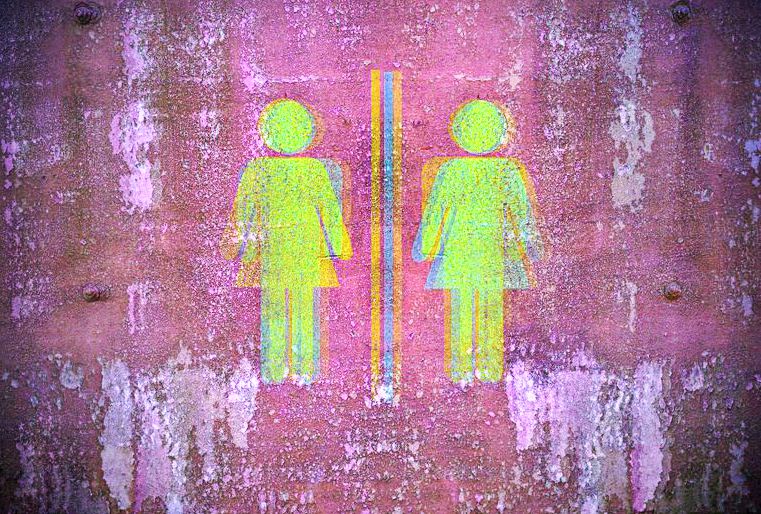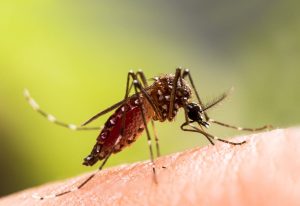WHILE FEMININE GENDER NORMS don’t mesh well with me in many ways, my body has never left me feeling uneasy, uncomfortable, or downright distressed. I’m cisgender, meaning I identify with the sex I was assigned at birth. I can’t empathize with transgender individuals. I don’t “get it.”
But there’s a big step – a leap, even – from not “getting it” to not believing it.
The announcement that Caitlyn Jenner would be receiving the ESPY Courage Award was followed by a notable amount of public outrage. Memes circulated Facebook juxtaposing Jenner’s Vanity Fair cover photo with images of soldiers, labeling the latter as examples of “real courage,” implying that the process of transitioning doesn’t take courage.
I don’t want to talk about Caitlyn Jenner specifically or her award. I want to talk about courage.
Merriam-Webster defines courage as: “mental or moral strength to venture, persevere, and withstand danger, fear, or difficulty.”
The world is not kind to those who don’t fit into the neat sex binary most of us are familiar with. Transgender people are subject to high rates of discrimination in the areas of housing and employment, leading to higher prevalence of financial insecurity and homelessness. Most states don’t provide the same legal protections against discrimination of transgender people as they do for others. Abuse, harassment, and violence are also typical experiences among members of this community.
The statistics, according to various surveys and data, are disgusting:
- 41% of transgender individuals surveyed in Injustice at Every Turn report having attempted suicide, compared to 1.6% of the general population
- transgender people are affected by poverty at four times the rate, and unemployment at twice the rate, as cisgender people
- 78% report having experienced harassment in school – with 31% facing from teachers or staff
- 19% have experienced domestic violence
- 50% have experienced workplace harassment
- 20% experience homelessness at some point
Statistics on murder and violence vary widely, but transgender people (especially people of color) are agreed to be at a higher risk of experiencing violence than other members of the LGBTQ community.
(These statistics likely fall short of reality. Not all cases of abuse, harassment, discrimination, and violence are reported, and, particularly in cases of violence and murder, individuals may be misgendered in reporting.)
Just living, just leaving the house as a transgender individual, involves facing a high degree of danger and difficulty. Transitioning – the process by which the body is brought into alignment with the person’s gender identity – can increase the dangers and the difficulties faced. It seems indisputable to me that those who transition are doing something profoundly courageous – exhibiting strength to persevere in the face of danger, fear, and difficulty.
But some people can’t see that as courage. If you’re one of them, I suspect you’ve made the big leap from not “getting it” to not believing it. This leap is a fallacy, and you have a responsibility to correct it – and not simply because it’s a cognitive error. What it can and often does breed – from ridicule and stigmatization to hate and violence – is harmful.
When empathy is lacking or impossible, we’re standing on ground where we can’t access another’s perspective and experience. And while this lack of access inhibits empathy, I think it just as equally inhibits our ability to legitimately, reasonably doubt that experience and that perspective to which we have no access.
But some claim that they can judge that being transgender is a choice, is unnatural, is dishonest because whether a person is male or female is determined by biology. “Sex is biological” – a statement we’ve all had ingrained in us. A penis makes a male; a vagina makes a female.
It may be hard for some to understand or accept that sex is not so clear-cut after all. Sex is determined by many factors, not just genitals – chromosomes, hormones, and genes, for example. Some people’s chromosomes don’t match up with the sex their genitals indicate; some people have mixed chromosomes; some bodies don’t use sex hormones in the usual ways. And while it’s not known that all transgender people have an observable biological basis for sex dysphoria, the scientific understanding of sex is becoming increasingly complicated, and if you claim to have some right to doubt the experiences of others on the basis of science, you ought to do your homework. As part of your research, I highly recommend reading Kat Callahan’s biologically-rooted experience as a transgender woman.
Being transgender is not a choice. Transitioning is a choice. Choosing to bring one’s body into alignment with one’s self-concept, and perhaps even aspects of one’s biology, in the face of a hostile world takes courage. If you’re part of that hostile world — intentionally or unwittingly — I hope you’ll take the time to reevaluate your fitness to doubt and judge the experiences of others.
Listen to people. Hear their stories. Do your homework.


-300x200.jpeg)









-300x241.jpeg)




